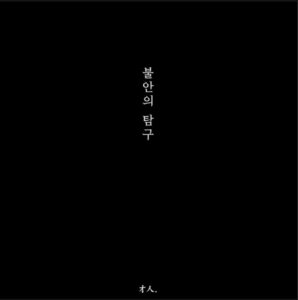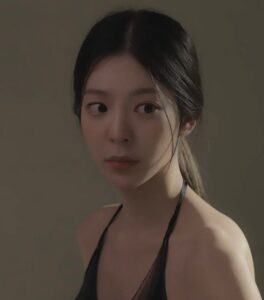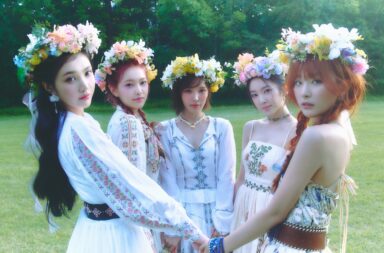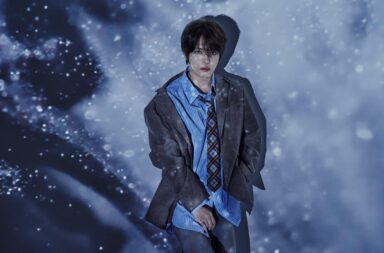
In 2010, a young singer with a powerful voice made a big impression on the survival show Superstar K2. She would eventually finish third in the competition. The following years were eventful, in both positive and negative ways. She released several memorable OST, collaboration, and solo tracks. She went through a (controversially) very public breakup. She also suffered from serious mental health challenges, in part stemming from a sexual assault that occurred when she was a teenager.
These are the events that have defined and influenced the first decade of Jang Jane’s career. One thing conspicuously missing from them is the release of a full album. 10 years is a long time to wait for that professional milestone, but it is finally here and far from an anticlimax.
Sonically, The Quest for Anxiety is wonderfully unique. None of its nine tracks play by the rules of any one musical style. Instead, Jang Jane plucks and melds elements from a wide variety of genres. Tonally, the album also refuses limitations. It, and therefore Jang Jane herself, is by turns angry, amused, melancholy, fearful, and hopeful. The array of emotions and musical elements which fill The Quest for Anxiety are a lot for one album to hold. Fortunately, Jang Jane’s authentic voice brings them all together into a cohesive and compelling whole.
Folk music, specifically country and blues traditions, are a recurring influence in The Quest for Anxiety. The most obvious example is “Full moon blues”, a bitterly exuberant tune with twangy instrumentation. Jang Jane’s rich vocal tones fit right into the rollicking atmosphere of “Full moon blues”, demonstrating what a nice match the genre is for her singing style.
A subtler application of folk elements can be found in “Imagine”. The song begins with spare and playful production. It then swings into a beautifully airy, guitar-backed chorus that could easily serve as a refrain to a country ballad. The interjection of this hook gives the otherwise calm atmosphere of “Imagine” a welcome dose of momentum.
While the folk genre makes multiple appearances in The Quest for Anxiety, other musical styles show up for just a single track. “Lee Sang” is a very strange song, and that is a compliment. It falls perfectly into the avant-garde tradition. Accompanied by a jazzy piano, Jang Jane drawls a handful of menacing lines. Then, “Lee Sang” abruptly ends with the sound of rapid footsteps and a few clanged notes from the keyboard.
Title track “Dust” is The Quest for Anxiety’s alternative rock anthem. Jang Jane snarls and belts her way through the song with a spirit of wry rebellion. In a fun nod to the album’s penchant for genre melding, her styling is gothic in the track’s MV. While seemingly random, the fashion choice actually affirms the mutinous mood of “Dust”.
One of the great aspects of the album is the number of different feelings which are explored in its tracks. However, there is a consistent emotional through line in The Quest for Anxiety, perhaps best described as a streak of hard-won hopefulness. “House keeping” is a nice example of this. The song feels both full of pain and stubbornly resilient. Jang Jane’s voice wavers yet never breaks.
“Regret of a sigh” provides a more balladic interpretation of the sentiments of “House keeping”. Bit by bit over the course of the song, Jang Jane’s volume and intensity increase. In the track’s final stretch, she first unleashes her full vocal strength and range, then pulls back to conclude “Regret of a sigh” with delicacy. The song seems like a lament for something lost, but in a way that is cathartic rather than despairing.

The Quest for Anxiety thrives on complexity. Therefore, it shouldn’t be surprising that its weakest track is also its simplest. “Fly” does practice genre melding by marrying pop influences with folk instrumentation. However, it completely lacks the emotional intricacy of the rest of the album. “Fly” is all uplift and nothing else. Since there is no edge to its brightness, the song feels insincere and has no impact.
In complete contract, “All the Lies” and “Pale Christmas” do a beautiful job mixing sadness and foreboding, and sadness and sweetness respectively. They also both enhance their soft indie vibes with electronic production touches. The two songs serve as ideal bookends to The Quest for Anxiety, slowly easing you in and kindly ushering you out of the album’s intense embrace.
In The Quest for Anxiety, Jang Jane refuses to be pigeonholed as either an artist or a human being. The fruit of her labor is a vibrantly complex and utterly singular album. 10 years since she burst onto the scene, Jang Jane has truly come into her own. It was worth the wait.
(Mashable SE Asia, YouTube. Images via New Era Project, Instagram)


